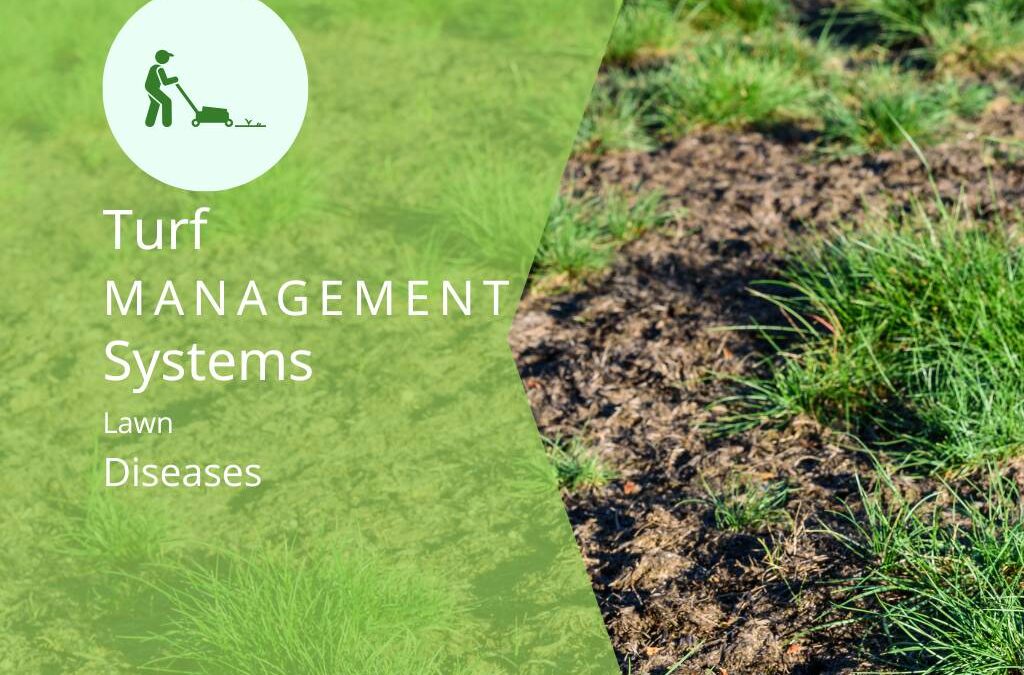A lush, green lawn is more than just a symbol of pride—it’s a key aspect of maintaining your property’s curb appeal. But homeowners in Hoover, AL, know that the humid Alabama climate can create the perfect storm for lawn diseases. Whether it’s patches of discolored grass, signs of fungal growth, or thinning areas, lawn diseases can quickly diminish the health and appearance of your yard if left unchecked.
The good news? Identifying and addressing these issues early can make all the difference. With proper care, customized treatments, and a thoughtful maintenance plan, you can ensure your lawn thrives year-round. Let’s explore how you can recognize, combat, and prevent lawn disease in Hoover, AL.

Recognizing the Symptoms of Lawn Disease
The first step in combating lawn disease is early detection. Many common problems begin with subtle signs, so knowing what to look for can prevent minor issues from turning into major headaches.
Common Symptoms of Lawn Disease
Pay attention to these tell-tale signs when inspecting your lawn:
- Discoloration: Patches of yellow, brown, or white grass can indicate fungal infections or nutrient deficiencies.
- Patchiness: Thinning or bare spots in the lawn often point to diseases like brown patch or dollar spot.
- Fungal Growth: Look for unusual mushrooms, powdery white substances, or web-like growths on the grass. These often signal fungal activity.
- Weak Turf Structure: A lawn that feels spongy or has grass pulling up easily may be dealing with diseases affecting root health.

The Tug Test
Not sure whether your grass is dead or dormant? Perform this simple tug test:
- Grab a handful of grass blades from the affected area.
- Gently pull upward.
-
- If the blades pull away easily, this typically indicates root damage caused by disease or pests.
- If the blades stay rooted, the grass may be dormant, meaning it can likely be revived with proper care.
Regular monitoring and testing give you the advantage of catching issues before they worsen.
Cultural Practices to Strengthen Your Lawn
Healthy lawns are naturally more resistant to disease. By adopting smart cultural practices, you can improve the health of your turf and make it less susceptible to common lawn issues.
1. Watering at the Right Time
- Why It Matters: Overwatering or watering at the wrong time of day can promote disease by creating excess moisture, which encourages fungal growth.
- Best Practice: Water your lawn early in the morning (between 5 a.m. and 9 a.m.). This allows excess moisture to evaporate as the day warms up, keeping the grass dry and reducing disease risks.
2. Keep Mower Blades Sharp
- Why It Matters: Dull blades tear grass instead of cutting it cleanly, leaving jagged edges that are more prone to disease.
- Best Practice: Sharpen your mower blades at least once a growing season, or sooner if you notice frayed grass tips after mowing.
3. The Power of Aeration
- Why It Matters: Warm-season grasses like Bermudagrass thrive when their roots can access air, nutrients, and water. Without aeration, compacted soil can choke root systems and invite disease.
- Best Practice: Aerate your lawn in early spring or mid-summer to loosen compacted soil and improve airflow. This practice also supports better water absorption and nutrient distribution.

Treatment Options for Lawn Diseases
Once lawn disease has been identified, targeted treatments can help eradicate the problem and prevent it from spreading. Here’s how you can take action:
1. Preventative Fungicides
- What They Do: Prevent fungal infections before they can take root. They’re particularly useful in Hoover’s humid climate, where conditions often favor fungal activity.
- Application Tips:
-
- Use fungicides in late spring or early summer when disease risks are highest.
- Follow product instructions carefully to avoid over-application.
2. Customized Fertilization Plans
- Why It Matters: Grass in Hoover thrives with the right balance of nutrients, but too much nitrogen can inadvertently promote certain diseases.
- Best Practice:
-
- Tailor your fertilization plan based on soil testing results.
- Look for slow-release fertilizers that promote steady, long-term growth.
Preventive Measures for Long-Term Lawn Health
While treatment options can address immediate issues, prevention is the most effective strategy for long-term lawn health.
1. Conduct Soil Testing
- Why: Testing the soil reveals nutrient deficiencies or pH imbalances that could weaken your grass.
- Next Steps:
-
- Perform a soil test every 2–3 years to adjust fertilization and lime applications accordingly.
2. Dethatching
- Why: Thatch buildup provides a haven for disease-causing organisms. Thick layers of thatch prevent air, water, and nutrients from reaching grass roots.
- Best Practice:
-
- Remove thatch in early spring using a dethatching rake or power dethatcher.
3. Effective Weed Control
- Why: Weeds compete with grass for sunlight, water, and nutrients, leaving your lawn weaker and more susceptible to disease.
- Best Practice:
-
- Use a combination of pre-emergent and post-emergent herbicides to keep weeds at bay.
4. Choose the Right Grass Types
- Why: Certain grass species are naturally better suited to Alabama’s climate, requiring less input to stay healthy.
- Hoover-Approved Grass Types:
-
- Bermudagrass – Highly heat-tolerant and ideal for full sun areas.
- Zoysia Grass – Resistant to drought and moderately shade-tolerant.
- Centipede Grass – Low-maintenance and well-suited for Alabama’s acidic soils.
When to Call in the Experts
While DIY care can resolve many lawn problems, there are times when professional expertise is invaluable. Lawn care professionals in Hoover offer tailored solutions that go beyond basic maintenance, including:
- Professional soil testing and analysis
- Seasonal aeration and fertilization programs
- Advanced weed and pest management
- Fungicide treatments customized to disease type and severity
Investing in professional services not only saves time but also ensures your lawn receives consistent, high-quality care from experts who understand Hoover’s unique landscaping challenges.
Achieve a Disease-Free Lawn Year-Round
Maintaining a healthy lawn in Hoover, AL, doesn’t have to be an elaborate process—success lies in early detection, informed actions, and preventive care. By monitoring for symptoms, implementing cultural practices, and relying on tailored treatments, you can combat lawn disease effectively while protecting your turf’s long-term health.
Lawn diseases may be a challenge, but they’re no match for proactive care and expert guidance. If you’re ready to enjoy a lush, vibrant lawn year-round, consider partnering with a local lawn care expert. The right support can make all the difference between struggling with recurring issues and achieving a picture-perfect landscape.
Your lawn deserves professional care—connect with Hoover’s top lawn care specialists to experience the difference today.



Recent Comments